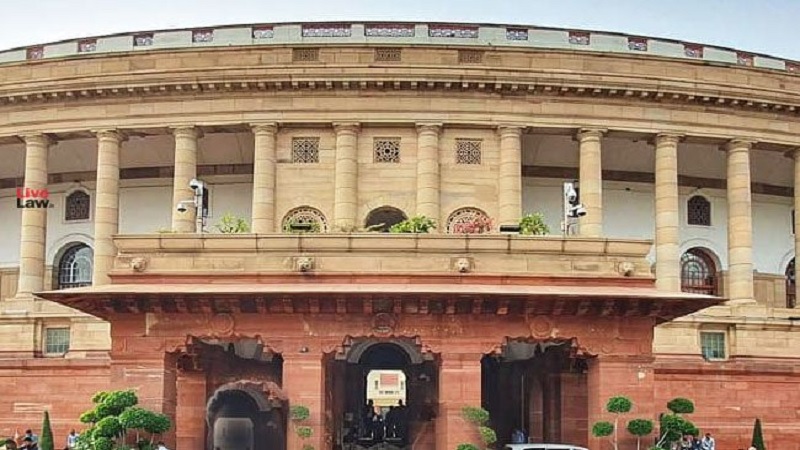 Image Courtesy:livelaw.in
Image Courtesy:livelaw.in
The CPI (M) floor leader in Rajya Sabha Elamaram Kareem is likely to introduce a Private Member Bill in Rajya Sabha during the on going Monsoon Session for repealing the offence of sedition from the Indian Penal Code. The law of sedition has indeed become a matter of contention not just for people who are booked for it but also in courts where they find that the offence does not have all the ingredients necessary to comprise an offence of sedition. In most cases, counsels for the accused have argued that sedition is invoked in cases to keep the accused in custody, as the same is cognisable offence, and does not need a warrant for arrest.
Sedition has been a rather hot topic of debate ever since, the Supreme Court bench led by CJI NV Ramana took up a petition challenging the constitutional validity of section 124A of IPC. He made an oral observation that sedition was a colonial law and that the continuation of such laws after Independence was unfortunate. The petition has been assigned to a three-judge bench of Justices UU Lalit, Indira Banerjee and KM Joseph and the bench has issued notice in May.
While the court will ultimately decide on the constitutional validity, it would simply make matters simpler if the legislature were to delete the sedition offence from the penal code. However, there is absolute lack of legislative will in this matter and private members bills seldom get passed.
Kerala, which is Kareem’s home state and also a state where CPI (M) has governed since 2016 in continuity. As per National Crime Records Bureau (NCRB) Crime in India report of 2019, Kerala had only 4 cases of sedition registered. In June, Kerala High Court had granted bail to filmmaker Aisha Sultana who has been booked for sedition over her remark that the Central government had used Covid-19 as a “bio weapon” against the UT of Lakshadweep. However, when she moved a plea to quash the FIR, the court denied it.
The misuse
The offence of Sedition has been misused by the Government in imprisoning those who differ from the Government point of view, thus negating the freedom of speech guaranteed by the Constitution. A plethora of intellectuals, journalists, social activists, writers, tribal sympathizers, etc. have been put behind bars with no scope for bail or quick hearing in Courts. These include, activists as Gautam Navlakha, Anand Teltumbde, Varavara Rao, Sudha Bhardwaj, Stan Swamy, Umar Khalid, etc. who have been arrested under Sedition/UAPA charges.
The misuse by the government has augmented in the past 6 years and the same is evident from the data collated by National Crime Records Bureau (NCRB) in its Crimes in India report released annually. In its 2019 report a conviction rate of mere 3.3% was found in sedition cases.
A comparison of data from 2015 until 2019 shows that there has been a 64% increase in sedition cases registered. The number of cases in 2015 is 30 while in 2019 it has escalated to 93. The numbers have also grown steadily over the years; in 2016 there were 35 cases, in 2017 – 51 cases and 2018 – 70 cases.
Further, if we consider a sum total of some of these parameters, a total of 279 cases have been registered between 2015 and 2019 and trial has been completed in 56 cases but only 5 cases have culminated into conviction.
Court’s stand on sedition
In June, the Supreme Court quashed the FIR filed against journalist Vinod Dua for sedition stating that for offences of Sedition and public mischief, “only such activities which would be intended or have a tendency to create disorder or disturbance of public peace by resort to violence – are rendered penal.”
Recently, two High Courts, namely, of Punjab & Haryana and Gujarat, granted bail to persons booked under sedition. The Punjab and Haryana High Court observed that “freedom of speech is a fundamental right and makes a foundation for a strong democracy”. Gujarat High Court noted that no actual violence or breach of peace occurred and that witness statements do not indicate that any overt act was incited from the public due to actions of the accused.
Related:
Courts unshackle chains of sedition
Manipur activist jailed under NSA for Facebook post criticising BJP
Pathalgadi: Assertion of Adivasi rights over land
Citizens have the right to criticise the Government without inciting violence: SC